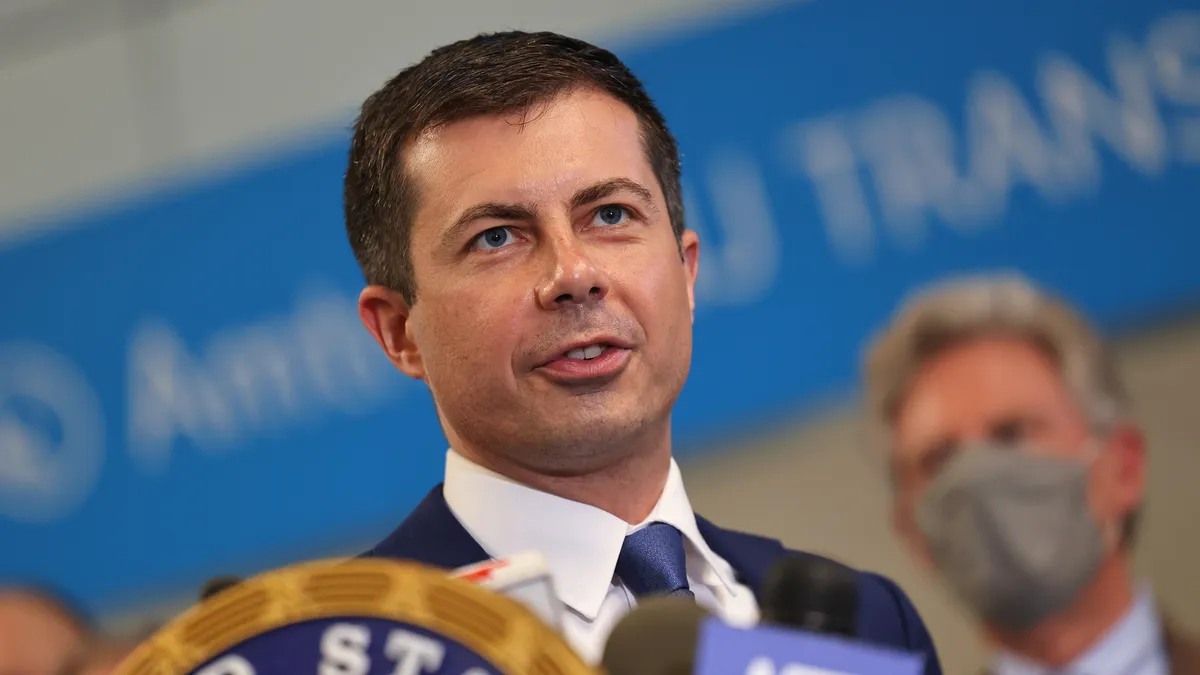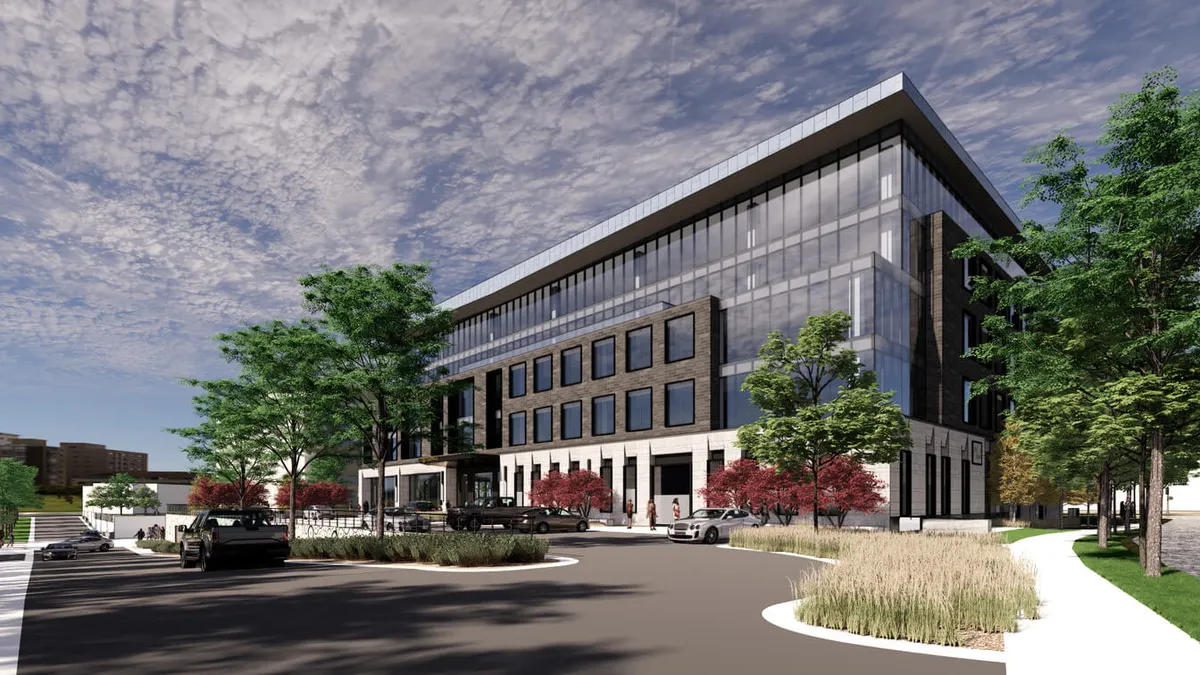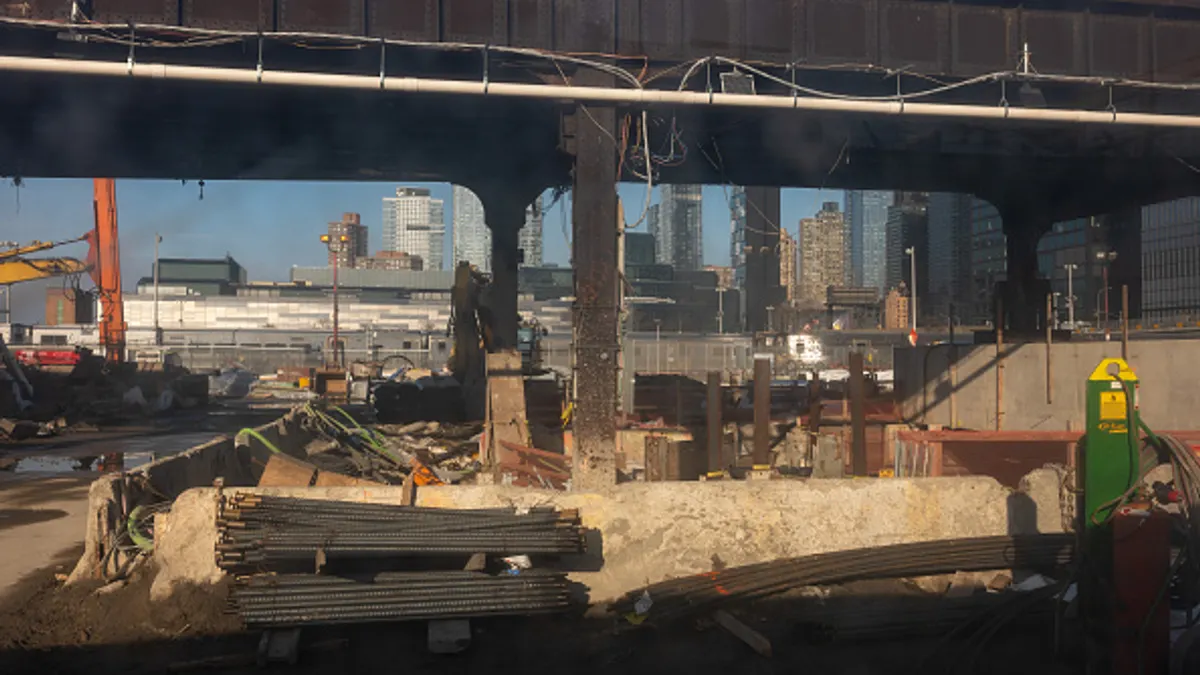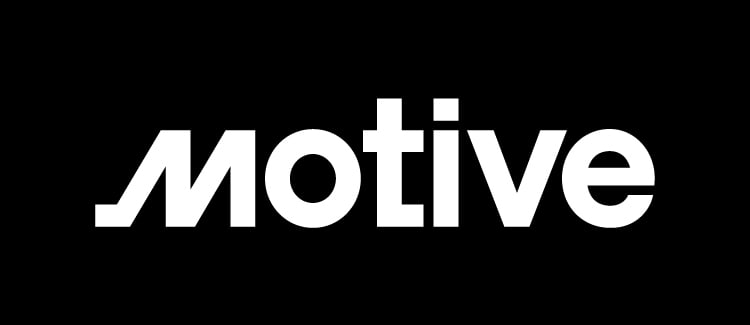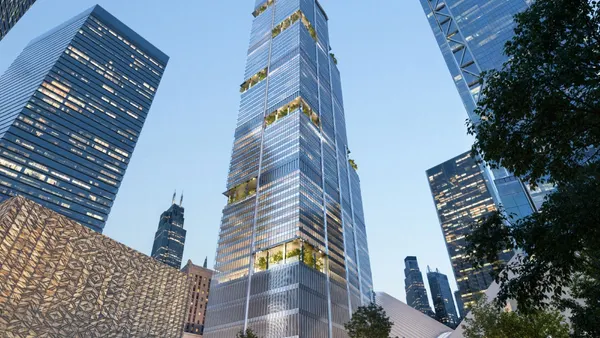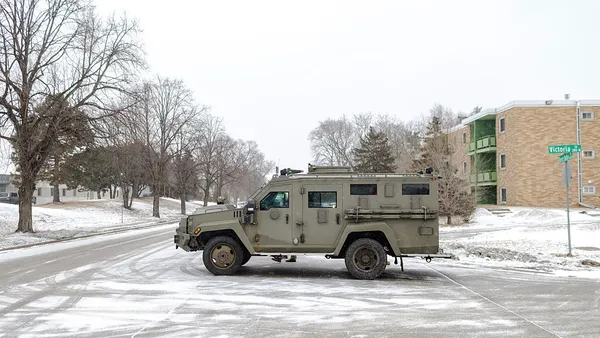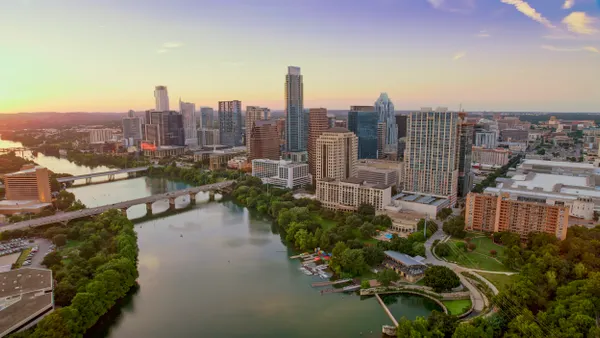Dive Brief:
- Construction's lack of diversity was pulled into the national political debate last week when Transportation Secretary Pete Buttigieg was confronted with a question about whether the bipartisan infrastructure package was a "White guy employment act."
- MSNBC host Joy Reid asked Buttigieg Thursday whether it was a mistake to separate physical infrastructure from President Joe Biden's Build Back Better social and environmental package, since the infrastructure law will likely employ mostly White men.
- "Do you think it was a mistake looking back, because you know that the infrastructure bill that was passed was cleaved apart from what's now being called Build Back Better?" Reid asked. "And in a sense, it's a bill that's like a White guy employment act, right?"
Dive Insight:
The construction industry, which stands to benefit perhaps more than any other sector from the $1.2 trillion Infrastructure Investment and Jobs Act, is overwhelmingly White and male, according to the Bureau of Labor Statistics.
White people represent 87.9% of all workers in construction, with just 11% of positions filled by women, and only 6.3% filled by Black people. The overall workforce, by comparison, is 77.5% White, 47% female and 12.3% Black.
Construction companies themselves have been struggling to combat that image, and rolled out the inaugural Construction Inclusion Week in 2021 to address it.
Buttigieg responded that the infrastructure law will benefit transit riders, many of whom are people of color, but also conceded he understood the point Reid was making.
"You look at the jobs we're going to create, and yeah, they have been traditionally White and male, but it doesn't have to stay that way," Buttigieg said. "We are working with a lot of focus at the direction of the president to make sure that everything from the contracting opportunities for small businesses to the labor opportunities for workers fixing the bridges, installing the electric vehicle charging stations are more likely to be workers of color, are more likely to be women."
For example, one aspect of the infrastructure act creates a Minority Business Development Agency within the Department of Commerce charged with helping non-majority companies get access to contracts, capital and grants.
In addition, the Department of Transportation and the Federal Transit Administration already have in place Disadvantaged Business Enterprise (DBE) programs that create goals for non-majority business participation in federal contracts. Those existing programs will ensure that at least part of the $110 billion dedicated to roads and bridges, as well as the $39 billion carved out for public transit, are awarded to businesses led by women and people of color.
But Congress held hearings last year to look at why the $66 billion set aside for passenger and freight rail in the act doesn't fall under those same requirements, since the Federal Railroad Administration doesn't have a DBE program.
Buttigieg argued that while the Biden administration had a long list of accomplishments in its first year, there was still work to be done.
"I want to challenge the idea that this is a bill that only benefits one part of the population," Buttigieg said. "I'm proud of what we got done in this transportation infrastructure bill, but this is exactly why we're not sitting back saying, 'Okay, we got everything done that we needed to in the first year.' It's why we're working even harder to keep delivering."
Clarification: This article was updated to reflect Construction Dive's editorial style.



